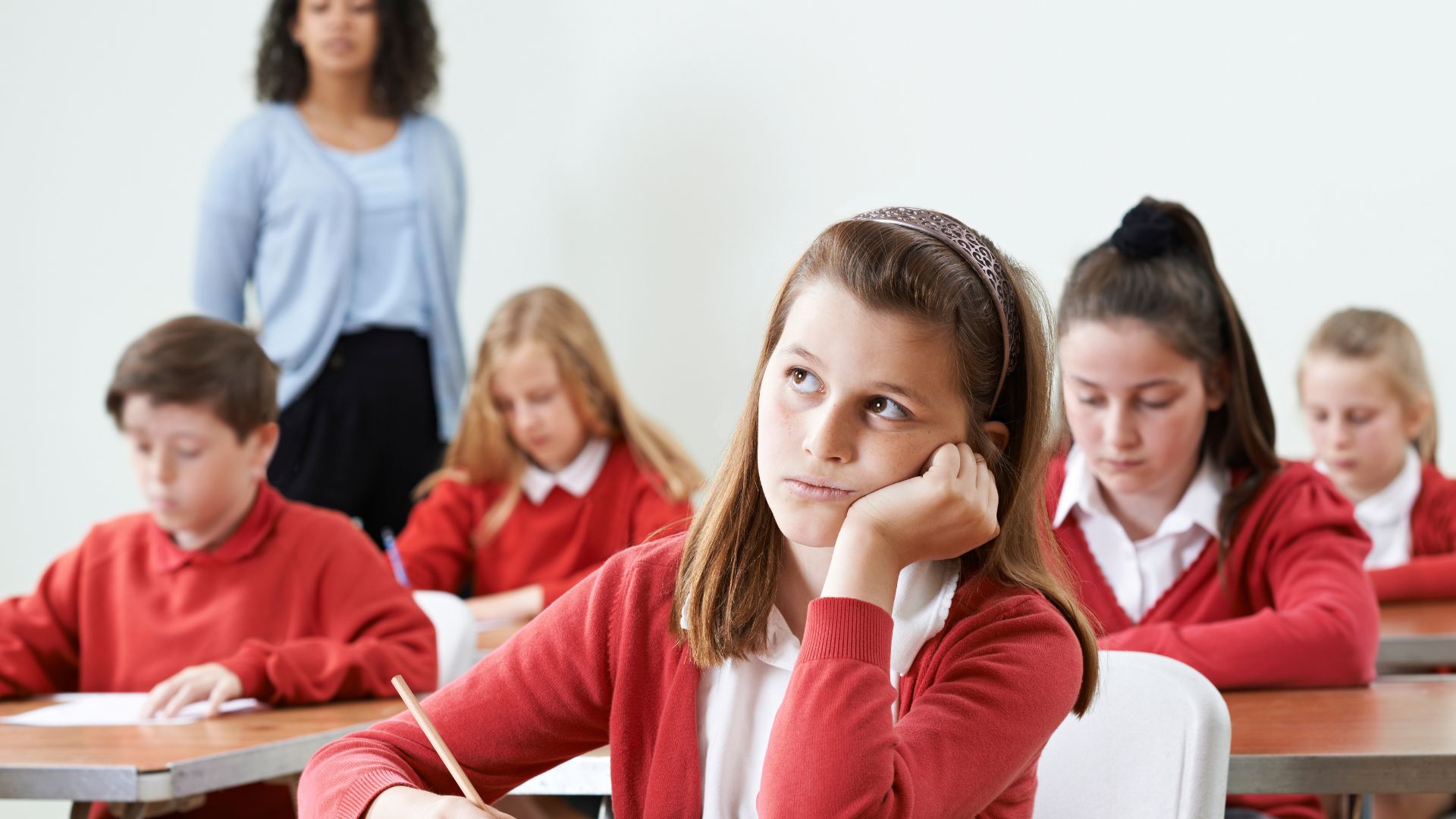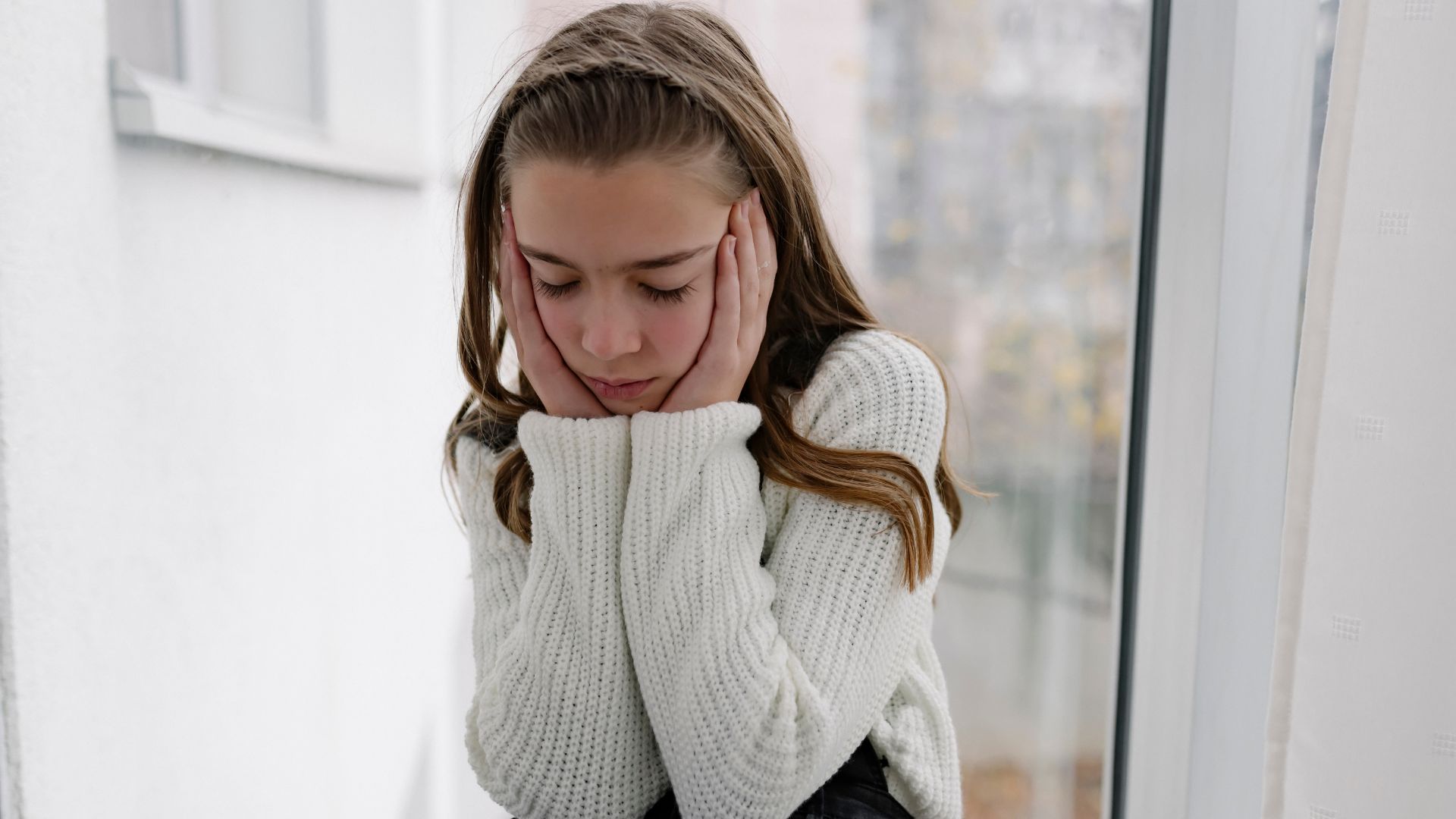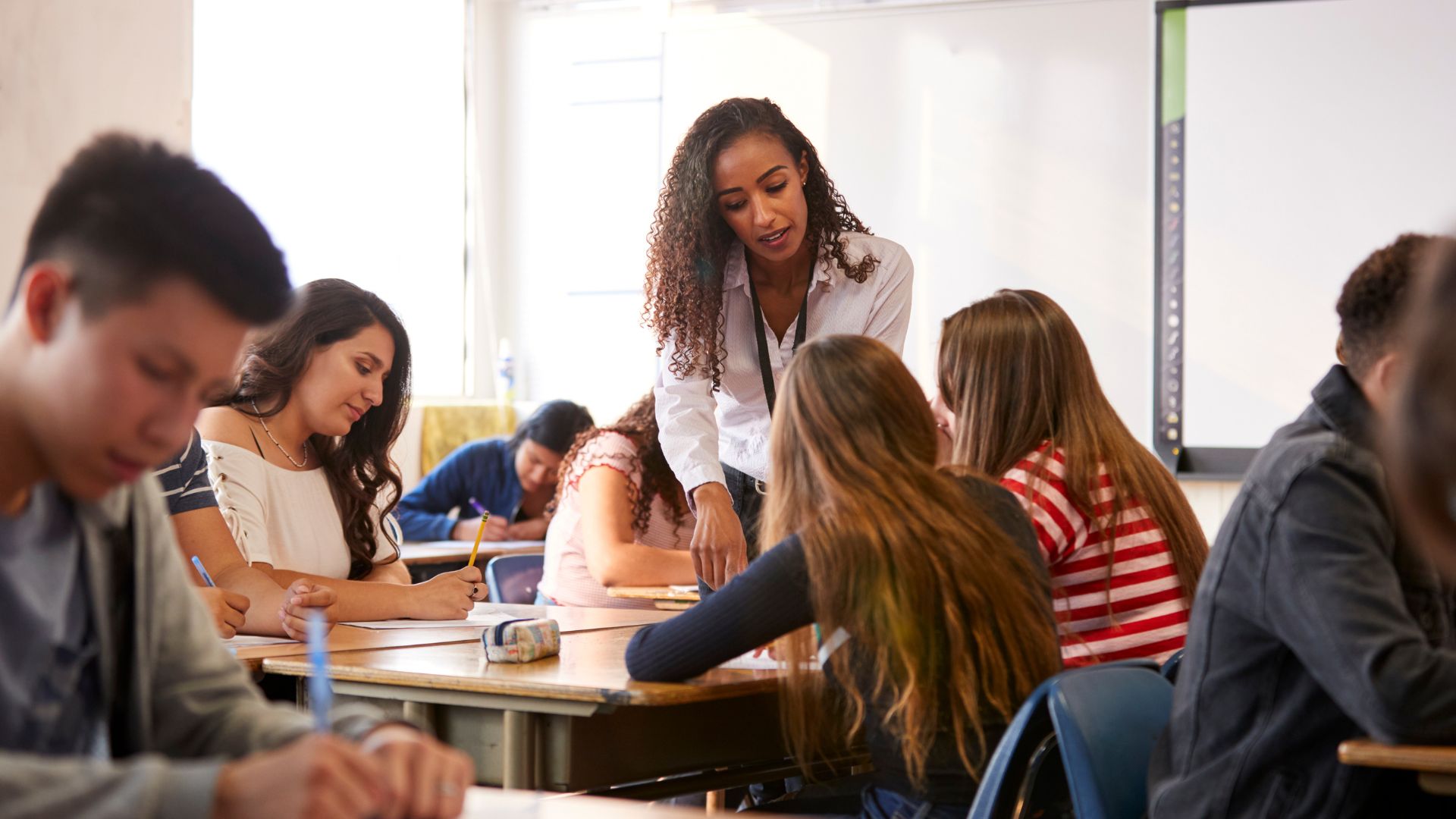
How To Recognise And Support Students With Anxiety
24 Feb, 20251-2 minutes
In this blog, you will learn:
- What anxiety is and how school students might display anxiety.
- The possible causes of anxiety within school students.
- How to recognise the signs of anxiety.
- How to support students experiencing anxiety.
- How to find and apply for the best teaching jobs.
High levels of anxiety in 11-16 year olds is an increasing concern in secondary schools across the UK. According to a survey by mental health charity Stem4, almost three in 10 secondary pupils are avoiding going to school because doing so would make them anxious.
Teachers and Teaching Assistants are responsible for the learning and welfare of their students, and in secondary schools, it can be difficult to be aware of how students display anxiety and what can cause it. Tackling the issue of high cases of anxiety in secondary schools can be easier said than done if Teachers don’t know what they’re looking for or how to support students properly.
Throughout this blog, you’ll discover how to recognise the signs of anxiety and how to support students at secondary school with anxiety disorders.
What is anxiety?
Anxiety is an emotion which is characterised by an unpleasant feeling of unrest and inner turmoil and can affect anyone regardless of age, gender or race. Anxiety is the fear experienced in anticipation of a future personal threat, danger or challenge.
An article in the Guardian revealed that more than 500 children a day in England are being referred to NHS mental health services for anxiety, which is more than double the rate before the pandemic began.
It is becoming more accepted that anxiety is common in adolescents and that it can affect their ability to learn, work and live their lives.
How might school students display anxiety?
Anxiety can present itself in different forms in children and young people and generally manifests in the form of different behaviours. From feeling tired, to physical trembling or withdrawing from activities or engagement, students can display anxiety in a variety of ways.
Anxiety can display various physical, mental, and behavioural symptoms and generally manifests in the form of avoidant behaviours. Students may display physical signs of anxiety including sickness, headaches, vomiting, sweating and fatigue as well as emotional symptoms.
Anxiety can affect people's mental health and students can display symptoms including low self-esteem, anger or irritability, excessive worrying about minor issues and being out of control during outbursts.
What might cause anxiety within school students?
Causes of anxiety within school students:
- Exam stress.
- Hormones.
- Social media.
- Personal circumstances.
Exam stress
It is normal for students to feel anxious sometimes, especially when it comes to exams and the pressure to be a high achiever. Cortisol is the body's primary stress hormone, and when secondary school students experience academic pressure, their cortisol levels may increase.
If the anxiety experienced in response to exams is repeatedly triggered, it can gradually develop into more serious forms of anxiety including panic attacks.
Chronic stress, worries about exams and pressure on students to choose GCSE subjects can contribute to the development of anxiety disorders, as high cortisol levels lead to prolonged feelings of anxiety, nervousness, and restlessness, making it crucial to support students during exam periods.
Hormones
Secondary school can be a difficult time for any student, with hormones and puberty presenting various challenges as well as the new changes being difficult or uncomfortable to understand or comprehend.
During adolescence, hormonal changes can affect sleep and brain development, and these changes can make students more emotionally sensitive and therefore more prone to overreacting to stressful or anxiety-inducing situations.
Teenage and school years are a time of rapid physical development and emotional change and even though uncertainty and unhappiness are a part of adolescence, some students can experience more serious problems.
The body undergoes a surge in hormones during puberty such as testosterone, oestrogen and progesterone, which can lead to significant emotional changes including disrupting mood stability and heightening anxiety levels.
Social media
Social media can have a negative effect on students' mental health especially when used too much or without caution. It can be difficult to monitor what students are doing or seeing online with risks including cyber bullying and trolling, both of which can create insecurities. It can also expose students to harmful or hurtful content that may trigger feelings of stress or anxiety, and develop into mental health issues.
It’s also important for people to have human interaction in order to understand social cues and develop personal connections with others. Social media can make it difficult to forge connections as students may feel withdrawn or uncomfortable in real life situations, without the comfort of hiding behind a screen.
Social media can also affect sleep, reduce attention span and distract students from socialising, studying, learning and having fun. All of these contribute to a healthy balance and good mental health. Social media guidance for teaching professionals can help ensure students are supported at school and behind a screen.
Personal circumstances
With so little research on the causes of mental health including not completely understanding why students suffer from school anxiety, there are other possible reasons why people suffer from anxiety disorders. Sometimes anxiety isn’t caused by something school related like bullying or exam pressures, it could be caused by troubles at home or family issues.
Students may develop anxiety for a variety of reasons, as a result of a specific cause or due to personal circumstances such as illness, worries at home. Anxiety can be triggered after stressful events such as divorce, chronic illness or moving house.
Anxiety may also be triggered by traumatic events such as abuse, the death of a family member or chronic illness, which can make it difficult for Teachers to understand the reasons for students anxiety or how best to support them when they are personal or home-related.
How to recognise the signs of anxiety
Anxiety can be displayed in various ways and isn’t always visible or obvious. It can be difficult to recognise the signs of anxiety in older children, however there are indicators of anxiety that Teachers need to be aware of.
Teachers should look out for the physical, emotional and mental symptoms of anxiety in students and see how it affects their ability to learn and function at school. Anxiety can also affect or interfere with a student's ability to learn and function at school affecting their academic performances. Older children especially may find it difficult to concentrate, lack the confidence to try new things or seem unable to face simple, everyday challenges.
Changes in behaviour as well as academic struggles could be as a result of anxiety. One of the behavioural symptoms of absenteeism is avoiding things or people that trigger anxiety. According to Stem4, poor mental wellbeing is a big reason for absenteeism in schools across the UK, and the same survey revealed that 28% of 12 to 18-year-olds have not attended school over the last year for that reason.
Teachers can look out for high levels of absenteeism in school or patterns in students' school attendance, as those who avoid going to school may be doing so as a response to anxious feelings. Recognising signs such as these can help Teachers to better understand how to support students experiencing anxiety.
How can Teachers support students experiencing anxiety?
There are many ways Teachers can support students experiencing anxiety by ensuring the classroom is a calm environment for them to be themselves, learn and thrive. It’s important for Teachers to think about ways they can help students with anxiety with their studying, exams, dealing with hormones and any other issues that might trigger their anxiety.
Teachers can also support students with anxiety by reinforcing positive values that are important to students, being mindful and creating opportunities for children to talk. Encourage self expression to understand students' thoughts and feelings as well as ways to manage their anxiety and what support you can offer. Validating students thought and feelings can be an effective way to manage their anxiety
By providing students with a safe space within the classroom Teachers can help to regulate anxiety, put them at ease and let them know that you are there to offer emotional support and guidance.
In their lessons, Teachers can also make the class aware of the risks of social media and the importance of students taking care of their mental health and prioritising their wellbeing.
Teaching jobs
If you’re searching for your next teaching job, why not take a look at the latest teaching vacancies, or simply upload your CV to be notified when a relevant position becomes available.
Recruit teaching staff
As a specialist education recruitment agency, we support mainstream and SEND schools with their temporary, permanent and temp-perm staffing needs.
We currently work with hundreds of schools and have exclusive access to some of the best Teachers and Teaching Assistants in the North West.
If you’re struggling to fill a teaching vacancy, why not get in touch with one of our team to see how we can help?
Primary schools - Jimmy Callagher
Secondary schools - Liam Jones
SEND schools - Jamie Heath
Who is Spencer Clarke Group?
Established in 2017, we’re an award winning and progressive recruitment agency based in the heart of the North West. Our reputation is built on trust, expertise and an unwavering commitment to exceed expectations.
In 2024, we were named Recruitment Agency of the Year at the prestigious Recruiter Awards, an accolade we are extremely proud of.
We operate in two sectors:
In eleven specialisms:
Healthcare, Social Care & Nursing
Corporate Functions & Business Support



